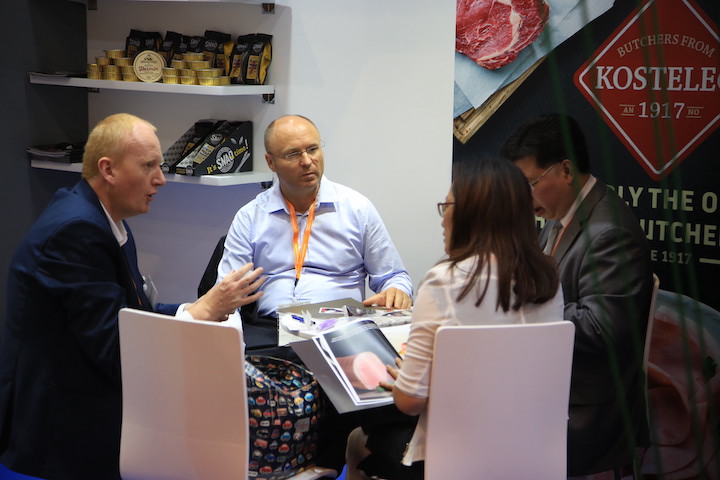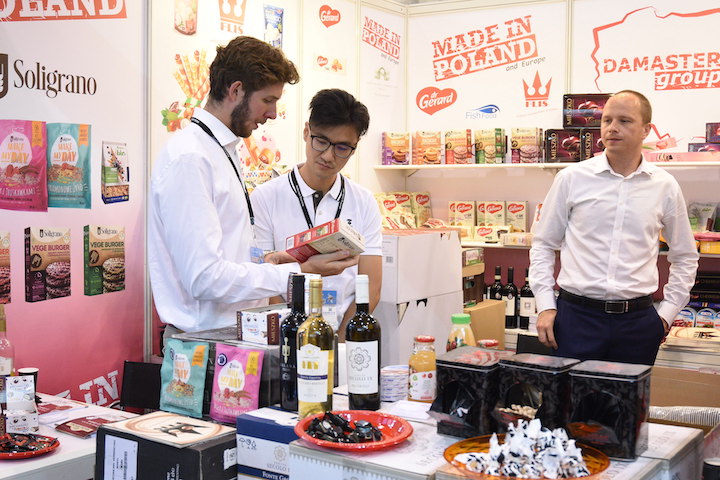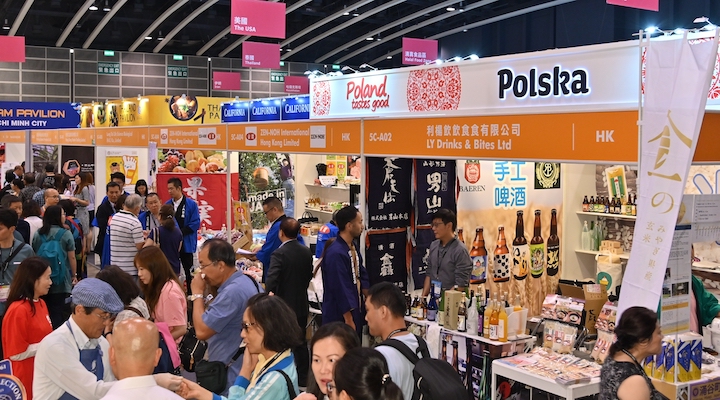‘Electronic tongues’ and 3D food printing may sound like something from a science fiction series – but they’re among the top trends identified by a senior Hong Kong scientist in the food technology field next month.
The HKTDC Food Expo Pro – to be held from August 17 to 19 – is expected to draw more than 600 exhibitors from 17 countries and regions, including new exhibitors from Singapore and South Africa.
Alongside Food Expo Pro, the HKTDC has organised a raft of seminars and forums covering new developments and market opportunities in the food industry. The Food Tech Symposium – a first-time feature for Food Expo Pro this year – will bring together speakers from several organisations and food tech companies who will share their insights on food tech trends in Hong Kong and globally, as well as new breakthroughs in food innovations.
One of those leading speakers is Dr Carmen Man, a lecturer with the Faculty of Science and Technology at the Technological and the Higher Education Institute of Hong Kong (THEI), who specialises in natural antimicrobials, food innovation, product development, 3D food printing, food sensory evaluation and upcycled food.
Three key trends in food innovation and product development
Dr Man identifies three key trends in food innovation and product development she believes will stand out in the immediate future.
The development of sensory labels on food products using an electronic taste-sensing system
THEI’s Food Innovation Centre introduced the first Electronic Tongue (electronic taste sensing system) to Hong Kong in 2021 with the funding support of the Hong Kong Government’s Trade and Industrial Department.
“One of the aims of the research is to enhance the food quality of locally produced food products,” says Dr Man.
Using an electronic tongue to undertake the taste analysis – rather than a human tongue – a more objective analysis result can be produced, leading to an improved consumer experience.
The revitalisation of food by-products
Food by-products like bread crusts, soybean residues, spent grains from local breweries, and imperfect produce – those fruits or vegetables deemed too ugly for supermarket shelves – can be collected hygienically for primary processing like drying and milling.
“The powder form of the food by-products can be reformulated to produce plant-based milk, bakery products and ice cream to improve their dietary fibre content, for example. This will ultimately help food manufacturers with adopting ESG principles that focus on taking measures to lower pollution, reduce CO2 output, and lessen waste,” she explains.
Texture analysis on texture-modified food formulate for the elderly
Texture-modified foods are being widely developed as the population of Hong Kong ages and the elderly demographic becomes more significant.
“The texture analyser can measure the food texture in terms of hardness, cohesiveness and adhesiveness, replacing the traditional spoon and fork test done by the speech therapists,” Dr Man says.
3D food printing can create custom-made cuisine
Dr Man also has a keen interest in 3D food printing, something that may appear to be “science fictional like” to consumers and industry practitioners alike.
She told Inside Retail that 3D food printing provides a solution to the labour-intensive work in the catering industry – for example, by repeatedly producing chocolate decors as toppings for cakes.
“The 3D models can be tailor-made according to the consumer as well. It is like ordering a cuisine dish with a special request in a high-end restaurant.”
She also sees the technology being adapted for home use, through the development of appliances that can produce professional-looking meals cooked at home.
The high cost of labour, property and logistics
Dr Man also shared her thoughts on the greatest challenges facing food manufacturers and processors in Asia right now, citing relatively high costs of property, labour and logistics services and potential solutions.
“High labour and property prices can reduce productivity and profit in the long run. Local food manufacturers can seek support from the HKSTP to enter the InnoPark in TaiPo Industrial Estate for a more economical property charge,” she said.
“To reduce labour cost and the lack of workforce in operating routine procedures, robotics and AI are new technologies being incorporated into the existing food processing.”
Companies looking to offset high logistics costs can consider using the bonded warehouse in the Greater Bay area in order to reduce warehouse storage fees, she adds.
“The bonded warehouses are located in Free Trade Zones where you can import, store, process, and/or manufacture goods without the need to pay import duties. The goods can be swiftly imported and exported from the zone.”

R&D resources are limited
Another challenge manufacturers face right now is a limitation on resources for food research and development.
The first Food Innovation Centre set up by THEI provides consultancy support and solutions to the local food industry. The research & development scope includes food product reformulation, food productivity enhancement, the introduction and application of new food ingredients and technology, green and smart food packaging design, food safety and hygiene internal training and sensory training.
“In the long run, local government plays an important role in emphasising the importance and recognition of food scientists and specialists by contributing silently to the nice name of “HK Food Paradise”.
Dr Man will speak during a session titled The Next Generation of Food: Emerging Technologies in the Food Industry on August 17. Here, industry pioneers will discuss new advancements and emerging technologies shaping the future of food. The panel will explore current trends and developments in Hong Kong and worldwide, as well as popular topics and novel solutions in food tech.
Automating online trade
Another presenter at the event – Herman Yong, chief solution architect at One Pacific – will discuss how online food and beverage businesses can trade 24-seven with minimal manpower, thanks to Cloud ERP integration and messaging chat platforms.
The solution optimises supply chain management, inventory control, and overall business efficiency, opening the way to revolutionise food business’ omnichannel strategies, achieving hyper-growth in e-commerce and distribution – and thus production.
Must-see features at Food Expo Pro
Backing up the extensive program of food technology experts is an essential destination for buyers to the Food Expo Pro – the new Food Science and Technology Zone, where buyers will find food products made using various technologies and the latest innovations from Hong Kong institutions. Another highlight of the fair will be the Chinese Medicine Zone.
A concurrent event, the Hong Kong International Tea Fair, features 10 pavilions including for Mainland China, Sri Lanka and, for the first time Kenya, where a wide variety of products including tea, tea-related products and tea wares will be on show.
Both the Food Expo Pro and the Tea Fair are being held in the Exhibition+ hybrid model, providing buyers with sourcing opportunities – not just at the Hong Kong Convention and Exhibition Centre but also through the Click2Match smart business matching platform and the HKTDC.com Sourcing platform. Buyers can schedule and conduct online meetings with local and overseas exhibitors via Click2Match until August 26.

HKTDC will also debut its Scan2Match service, which enables offline-to-online connections. Buyers can scan the dedicated QR code of exhibitors and product showcases using the HKTDC Marketplace App to bookmark their favourite exhibitors, browse product information and engage with exhibitors even after the fair to continue their sourcing journey.
Food Expo Pro and the Tea Fair are open to the public on the last day of the fair. There are three other public fairs, namely the HKTDC Food Expo, Beauty & Wellness Expo and Home Delights Expo, together with the International Conference of the Modernisation of Chinese Medicine & Health Products (ICMCM), that are running concurrently.






